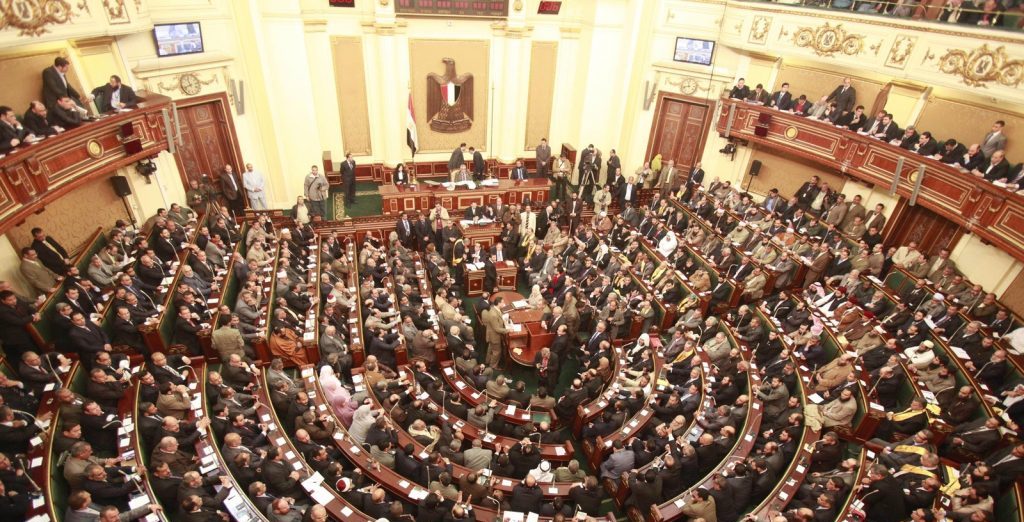Competition Act amendments pass the House

MPs give their final approval to Competition Act amendments: The House of Representatives yesterday voted to pass amendments to the 2005 Competition Act following two days of debate. The amendments — which got initial signoff from the chamber on Monday — grant the Egyptian Competition Authority (ECA) the power to block M&As that it thinks could harm market competition and promote monopolistic practices.
REFRESHER- The amendments force businesses looking to do mergers or acquisitions to seek ECA approval and give the regulator a veto over transactions that it deems anti-competitive. The existing law confines the ECA to only raising red flags about a transaction, typically after a sale is concluded.
It was a long and winding road to get here: MPs had hoped to pass the legislation before the House broke for recess back in the summer, but the vote was delayed thanks to unresolved differences between the ECA on the one hand, and the EGX, Financial Regulatory Authority (FRA), and central bank on the other. Successive antitrust bosses have sought the power to approve or reject M&As for years.
What changed? The draft amendments passed by the House settle the deadlock between the ECA and other bodies over how much time the ECA should have to review an M&A transaction and the fees it would charge companies. They also lay out the penalties for firms who fail to follow the new rules, and settle how mandatory tender offers (MTOs) will be regulated between the FRA and the ECA.
KEY TAKEAWAYS, per a House Economic Committee report on the bill seen by Enterprise:
#1- The final bill gives the ECA power to investigate transactions of all sizes: The amendments give the ECA the authority to investigate M&A transactions of any size if it has evidence that it could hamper market competition. A review is mandatory for companies whose combined asset value or combined business transactions in the last year exceed EGP 900 mn in Egypt, or EGP 7.5 bn globally. Some MPs had been opposed to the EGP 900 mn threshold, saying that it is too low and that the authority should only adjudicate larger transactions.
#2- Mandatory tender offers will continue to go through the FRA — with ECA input: Businesses acquiring shares via mandatory tender offers (MTOs) are required to get approval from the FRA before the transactions can progress. Under the new rules, the FRA has to notify the ECA of MTOs, giving the ECA 30 working days to recommend the FRA approve or block the transaction.
#3- Fees: The ECA won’t charge as much as it had hoped. The regulator will charge companies up to EGP 100k per transaction to conduct a first review. Pushback from the business community saw the proposed fees brought down from a previous draft that would have seen the ECA charge 0.025% of the total transaction value (or of the total value of assets merged under the transaction, whichever is higher), with an EGP 1 mn cap. The ECA can currently charge a fee of EGP 10k to look into requests from companies that want to exempt anti-competitive agreements from being subject to the law.
#4- Timeline: The ECA got the longer review period it had been seeking. The final version of the amendments keeps a 30-working-day timeline on reviewing transactions with the possibility for a 15-day extension. The ECA can also make the case to enter a second, 60-working-day review with another 15-day extension option if it suspects that a transaction would harm or restrict competition. Then-EGX chief Mohamed Farid (who now leads the FRA) had previously voiced concern over the length of first reviews, saying they should be cut to 15 business days to minimize any “negative impact.” Regulatory delays are already a persistent challenge to businesses that need to make decisions on whether or not to go ahead with an investment.
#5- Appeals: Companies will have 30 days to appeal against a decision made by the ECA. We don’t yet know who would review appeals or how long that process could take.
#6- Penalties: Fines for breaking the new rules start at EGP 30 mn. A fine of 1-10% of the value of the annual operations of the businesses engaged in the M&A transaction, or EGP 30-500 mn, whichever is greater, will be imposed on parties that fail to notify the ECA of their M&A plans, ignore the regulator’s final decision, or knowingly submit false documentation.
Other unknowns: It’s still not clear at which stage of M&A transactions businesses should notify the ECA. Business community reps had proposed that the ECA be notified after businesses conduct due diligence and decide whether they want to go ahead with the process or not.
What’s next? The amendments will be signed into law by President Abdel Fattah El Sisi before being published in the Official Gazette.
ALSO FROM THE HOUSE:
- Labor Act hearings continue: The House Manpower Committee continued hearings on the draft Labor Act with industry representatives.The bill, which was approved by the Senate in February, extends both maternity leave and notice periods, caps working hours, and changes minimum raise increments, among other things.
- Unified Tax Procedures Act lands in the House: House Speaker Hanafi El Gebali referred new government-drafted amendments to the Unified Tax Act to a joint committee. The amendment allows an exchange of client information by in compliance with international tax agreements effective in the country without prejudice to the Banking Act.